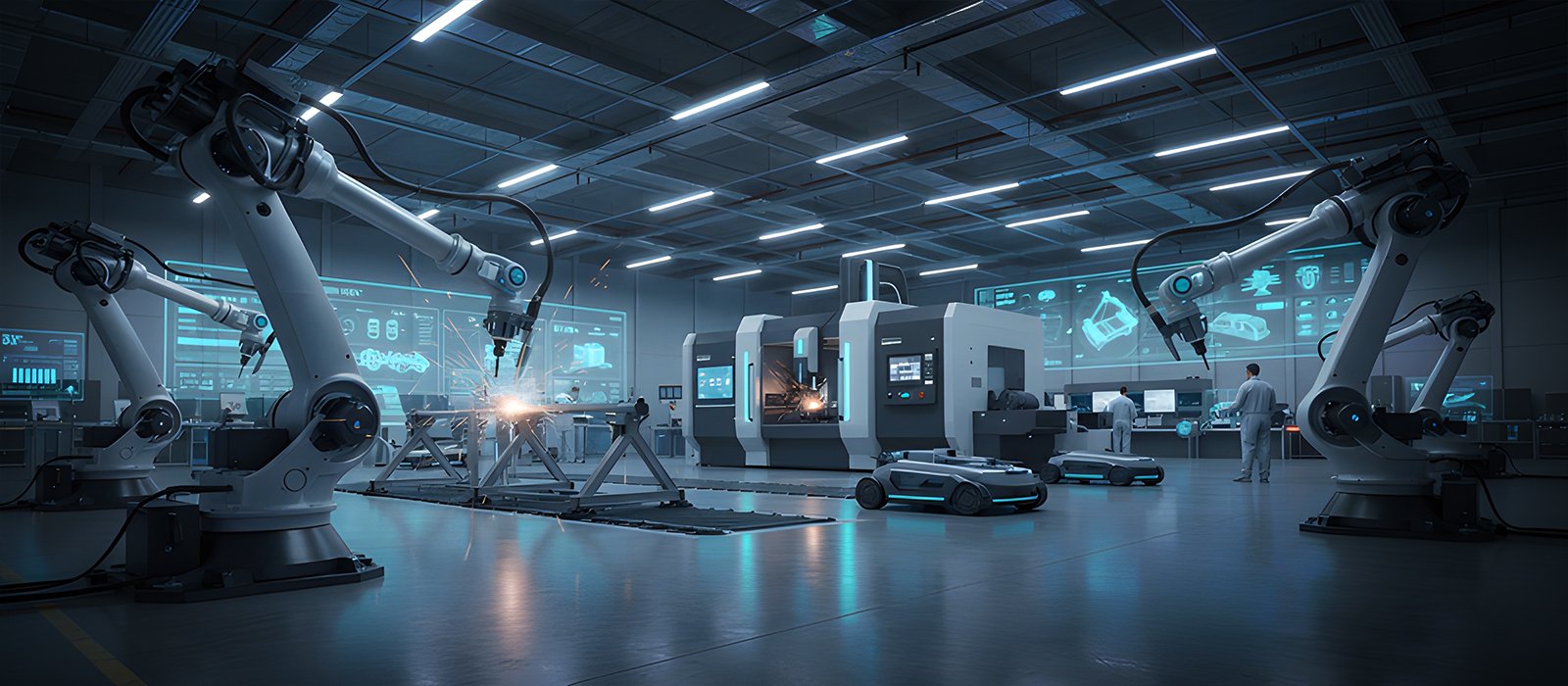From energy systems to heavy machinery, almost every industrial product involves metal fabrication in some way. But as technology, materials, and global manufacturing demands continue to evolve, so too does the fabrication process.
With innovation continuing to reshape component design, production, and delivery, at HD Industries, we have had a firsthand view of the change. The next decade promises faster production, higher precision, and greener operations than ever before.
Here’s a look at the key trends defining the future of metal fabrication and how they’ll impact manufacturers worldwide.
1. Automation and Smart Manufacturing
Automation is no longer a luxury; it’s an industry standard. From robotic welding arms to automated cutting systems, Industry 4.0 technologies are being integrated by manufacturing companies in their effort to streamline operations.
With sensors, IoT-enabled machinery, and data analytics, fabrication facilities now have the ability to monitor performance in real time, pinpoint inefficiencies, and prevent downtime before it happens.
At HD Industries, an investment in computer-controlled precision machinery reduces the possibility of errors, thus optimizing production flow and achieving better quality at faster speeds.
2. Advanced Materials for Performance and Efficiency
New lightweight metals, alloys, and composite materials are revolutionizing how products are designed. The demand for parts that are stronger yet lighter is increasing significantly in industries like aerospace, automotive, and energy.
Modern methods of metal fabrication allow for the usage of advanced materials, such as titanium alloys, high-strength steel, and aluminum composites-all which are engineered to meet precise performance standards.
HD Industries contracts with suppliers who provide sustainable, high-quality materials that ensure long-term reliability in every project that we deliver.
3. Sustainability and Green Manufacturing
Sustainability is a key business objective for the manufacturing industries. Energy-efficient processes, reduction of waste, and material recycling all play key roles in creating a greener future.
Fabrication shops are adopting closed-loop systems that recycle scrap metal, reduce emissions, and minimize waste. Even welding and cutting technologies have been redesigned to consume less energy.
HD Industries incorporates environmentally-friendly processes throughout our operations-from optimizing cutting paths to reusing leftover materials-that support our clients in meeting today’s environmental standards without sacrificing performance.
4. Digital Fabrication and 3D Integration
The future of metal fabrication is digital design and rapid prototyping. Using 3D CAD software and digital twins, engineers can simulate parts prior to the production process, allowing for fewer design errors while expediting approvals.
Additive manufacturing, or metal 3D printing, continues to expand its role in the making of complex geometries that previously could not have been machined. These manufacturing technologies reduce lead times and allow for more design flexibility. HD Industries uses these digital tools to enhance accuracy and reduce lead time, resulting in every fabricated component meeting the client’s specification with minimum revisions.
5. Skilled Workforce Meets Smart Technology
While automation does repetitive work, the human element is not forgotten. There is an ever-increasing demand for skilled machinists, welders, and fabrication engineers who are able to program, monitor, and care for advanced machinery. We firmly believe in human-tech collaboration at HD Industries, whereby expertise and technology combine to create world-class results. We continuously train our personnel in the latest manufacturing advancements.


Add a Comment